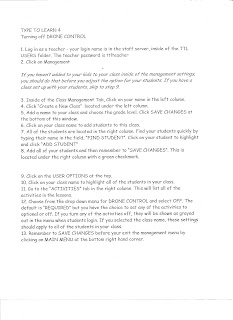The tragic events that took place Friday in Connecticut have hit every child, parent and educator very hard the world over. I will not be addressing this issue with the class as a whole, but will reply to individuals questions and fears. Many students will be aware of this issue and will be understandably sad, anxious, and worried that a similiar issue could happen at their school. We will have guidance counselors on hand to support students.
Here are Dr. Weaver's words from his Friday call out in case you did not receive it, "This is Superintendent of Schools Jeff Weaver reaching out to the families and staff of the Upper Arlington City School District in response to the tragic events associated with the elementary school shooting incident that transpired today in Newtown, Connecticut.
Here are Dr. Weaver's words from his Friday call out in case you did not receive it, "This is Superintendent of Schools Jeff Weaver reaching out to the families and staff of the Upper Arlington City School District in response to the tragic events associated with the elementary school shooting incident that transpired today in Newtown, Connecticut.
First, know that the safety and well-being of our students, staff and volunteers in our school buildings is our number one priority and our school counselors and staff stand ready to give comfort and assistance to the students, staff and families of our district if necessary or if requested. Please know that as our district works with law enforcement and safety forces we will use these tragic events to examine our policies and procedures to improve our practices to ensure the safety and well-being of those we are entrusted to protect. Our hearts and thoughts go out to those impacted by the tragic and unfortunate events of today. Thank you."
I would like to wish everyone a safe holiday season and winter break. With the recent tragedies, both local and distant, it is a good time to slow down and treasure our families. There will not be a newsletter next week.
I would like to wish everyone a safe holiday season and winter break. With the recent tragedies, both local and distant, it is a good time to slow down and treasure our families. There will not be a newsletter next week.
Our library days are: January 8, 24; February 7, 22; March 8, 22; April 16, 30; and May 14, 29.
December 21, 2012: Winter break classroom party (Please refer to earlier email re: volunteers.)
December 24, 2012 - January 4, 2013: No school
January 17, 2013: Family Fitness Night at Super Games
January 17, 2013: End of the second grading period
January 18, 2013: No school for students: Teacher grading day
January 21, 2013: No school in honor of Dr. Martin Luther King, Jr. Day
January 31, 2013: Early release @ 11:05 for conferences
February 13, 2013: Early dismissal at 1:15
February 18, 2013: No school in honor of Presidents' Day
March 23, 2013: Invention Convention at UAHS (more information coming in January)
April 29, 2013: Ohio Reading Achievement Assessments (all students will take)
April 30, 2013: Ohio Mathematics Achievement Assessment (all students will take)
May 11, 2013: Windermere Wish Run
What We Learned This Week
Word Study
- I can define ou and ow diphthongs as a glide from one vowel sound to another vowel sound.
- I can mark diphthongs with a d.
- I know that most English words use ou in the beginning or middle of a word.
- I know that most English words use ow at the end of a word.
- I can break words into syllables.
- I can mark open, closed and vce syllable types.
Reading
- I can determine research categories.
- I can differentiate between "note worthy" and non-note-worthy facts while researching.
- I can create a simple citation for any materials I use while researching.
- I can use context clues to comprehend unfamiliar words.
- I can use my time effectively to get my reading group job completed on time.
- I contribute to my reading group by being prepared.
Writing
- I can use the text to help me spell words correctly while taking notes.
Math
- I can determine how many steps are involved in a story problem.
- I can represent a story problem using a picture (bar model, part-part-total model) or writing a number model.
I am working with a small group of students four days per week to reteach multi-digit addition, multi-digit subtraction, and story problem strategies.
Please see the new links "Extra Math" and "Sumdog" under favorite links to the right for at home practice. mathfactcafe.com also offers free practice sheets.
Science
- I can explain how water molecules bond tightly together.
- I can provide examples (bubbles, meniscus, detergent, floating paperclips, surface tension, clay vs. sand, etc.) of water molecules bonding tightly together.
Keyboarding
Please click on the following information for learning keyboarding at home. I will provide your student with four weeks of daily keyboarding instruction using Type To Learn 4. The directions below allow your student to practice at home at no charge.
Student usernames and passwords were distributed earlier in the year. Please email me directly if your student needs their username and password.











